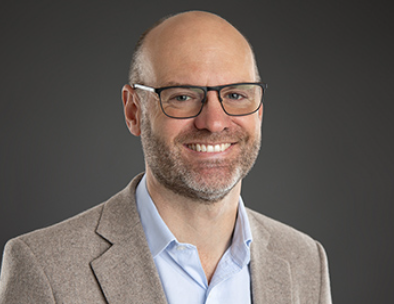Rod Buckley, director of Rapid Relief Team UK explains how all charities have a role to play when facing climate change
________________________________________________________________
Storm Isha is the latest example of how communities across the UK are increasingly experiencing the realities and consequences of climate changes. Charities – an essential part of the fabric of our society – have a crucial role to play in building resilience to ensure that communities are protected. As Director of the Rapid Relief Team (RRT), a charity run by members of the Plymouth Brethren Christian Church, I have witnessed the power of charitable action against this new challenge and seen the unique value all charities can offer. Yet, there remains an opportunity for more charities to help build resilience of communities vulnerable to climate change.
All charities can have a role to play
When natural disasters hit, emergency services and local government are the usual first responders, but charities can also play an important role. Charities’ unique skills and knowledge, which are often embedded in the local communities they serve, can prove extremely useful when responding to these events. What is more, charities’ extensive experience in delivering selfless, person-centred support to individuals makes these organisations and their volunteers especially well-fitted to respond to climate-related emergencies.
As the resources of first responders are increasingly stretched, charities are presented with a great opportunity to play to their strengths and complement the vital work of emergency services. Most importantly, this opportunity is not limited to disaster and emergency relief charities but could be seized by all – from mental health to education and disability charities. Climate change and its effects have such a profound impact on people and their livelihoods, that all charities, irrespective of their focus, can have a role to play in supporting communities to build resilience in the face of climate change. Supporting people impacted by climate change does not end with securing only their physical wellbeing, but also extends to their emotional and mental health, which is where a lot of charities’ work would prove incredibly valuable.
Embracing climate adaptability
However, this hinges on charities’ ability to be flexible and adopt their offering to best serve the needs of those impacted by the climate crisis. For instance, as Director of the Rapid Relief Team, I have worked with our volunteers to pivot the support we provide to make it suitable for people dealing with the immediate consequences of the extreme weather events we have been experiencing in the UK. Most recently, we deployed our volunteers to support those affected by the severe floods in Tewkesbury by distributing our bespoke RRT Food Boxes to impacted families. With severe flooding becoming increasingly frequent, we have re-imagined how we can use our resources to support those impacted by climate change. Our Food Boxes, which were first developed to support those facing poverty, now act as a valuable resource for those impacted by climate change.
It is also important to know your charity’s strengths and be able to draw on them to best respond to the growing need for support. For the RRT, our strengths lie in our numerous volunteer bases across the country and our ability to get boots on the ground as soon as disaster hits. This has allowed us to deploy hundreds of volunteers at the scene of natural disasters and offer tangible support to those affected through our Food Boxes. Every charity, whether it focuses on mental health, refugees, food, or physical wellbeing, will have its own unique expertise that can be deployed in the face of the climate emergency to provide holistic support to the people affected.
Strength through partnership
For charities that want to get involved in responding to climate emergencies, there is already an extensive infrastructure for organisations to collaborate and come together.
In particular, Local Resilience Forums are multi-agency partnerships made up of representatives from local public services such as emergency services, alongside other organisations, including public utility companies and voluntary organisations, which come together to plan and prepare for localised emergencies, including those caused by climate change. The Voluntary and Community Sector Emergency Partnership also brings various organisations together to deliver a more coordinated response to emergencies and improve cross-sector work to identify where expertise exists. Getting involved with one of these partnerships is an efficient way for charities to ensure that emergency services can call upon their abilities and resources to help as many people as possible.
Climate change will continue to be one of the most pressing issues of our time. Charities have an opportunity to embrace climate adaptability and help to build resilience against its social harms. By playing to their strengths and forming close partnerships, all voluntary organisations can offer unique, much needed support to communities impacted by climate change.
Latest News
-
Tributes paid to 'tenacious campaigner' who co-founded Terrence Higgins Trust
-
Man who set up fake animal charity jailed for five years
-
X-odus sparks video content boom among charities, report finds
-
Charity handed £25m endowment from autistic philanthropist to help others on the spectrum
-
Civil Society Covenant blighted by delays and U-turns, report warns
-
More than 30 jobs at risk as hospice charity looks to close home care service
Charity Times video Q&A: In conversation with Hilda Hayo, CEO of Dementia UK
Charity Times editor, Lauren Weymouth, is joined by Dementia UK CEO, Hilda Hayo to discuss why the charity receives such high workplace satisfaction results, what a positive working culture looks like and the importance of lived experience among staff. The pair talk about challenges facing the charity, the impact felt by the pandemic and how it's striving to overcome obstacles and continue to be a highly impactful organisation for anybody affected by dementia.
Charity Times Awards 2023
Mitigating risk and reducing claims

The cost-of-living crisis is impacting charities in a number of ways, including the risks they take. Endsleigh Insurance’s* senior risk management consultant Scott Crichton joins Charity Times to discuss the ramifications of prioritising certain types of risk over others, the financial implications risk can have if not managed properly, and tips for charities to help manage those risks.
* Coming soon… Howden, the new name for Endsleigh.
* Coming soon… Howden, the new name for Endsleigh.
Better Society

© 2021 Perspective Publishing Privacy & Cookies














Recent Stories